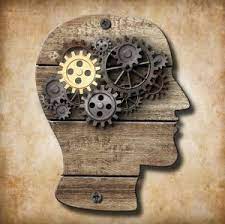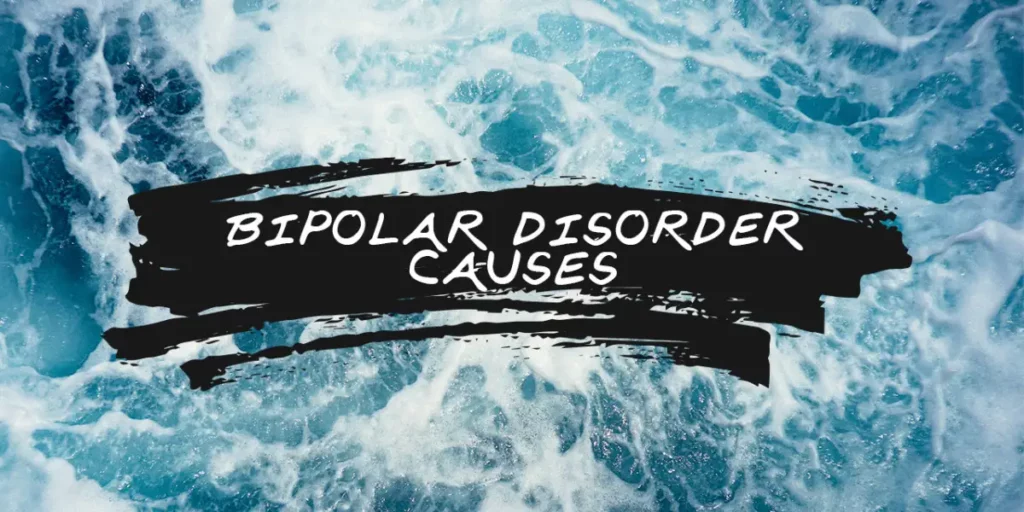Bipolar disorder is a mental illness that affects millions of people all over the world. Unfortunately, there is still a lot of mystery surrounding this condition. In this blog post, we will discuss the top five suspected bipolar causes. Keep in mind that more research needs to be done to determine the true cause of this condition. Hopefully, this information will help you better understand bipolar disorder and how it affects those who suffer from it.
Contents
What Is Bipolar Disorder?
 Bipolar is a mental disorder that is characterized by periods of extremely elevated mood, or mania, followed by periods of depression. This condition is also known as manic depression. People with bipolar disorder may have difficulty maintaining relationships, keeping a job, and performing everyday tasks.
Bipolar is a mental disorder that is characterized by periods of extremely elevated mood, or mania, followed by periods of depression. This condition is also known as manic depression. People with bipolar disorder may have difficulty maintaining relationships, keeping a job, and performing everyday tasks.
This condition is often characterized by:
- Extreme changes in mood
- Changes in energy levels and activity
- Impulsiveness
- Disturbed sleep patterns
- Difficulty concentrating
The exact causes of this condition are not known. However, there are several theories about what may contribute to the development of this condition. The following are five of the most suspected causes of bipolar disorder. So, you should know about them.
Top 5 Causes of Bipolar
Bipolar disorder is a mental illness that affects millions of people around the world. The exact cause is unknown, but there are several theories about what might cause it. Here are the top five suspected bipolar causes:
Genetic factors
In bipolar, genetic factors seem to play a role. If you have a family member with bipolar disorder, you’re more likely to develop the condition. For example, if your parent has bipolar, you have a greater chance of developing it than someone whose parent does not have the disorder. Genetic disposition does not mean that bipolar is inevitable, however.
More often, if someone has a close relative with bipolar, that person will experience what’s called “subthreshold symptoms.” These are symptoms that don’t meet the full criteria for diagnosis but can still cause problems in a person’s life.
Brain changes and function
 There is evidence that people with bipolar disorder have changes in their brain structure and function. Brain structure changes may be present from birth. These changes are likely the result of a combination of genetic and environmental factors.
There is evidence that people with bipolar disorder have changes in their brain structure and function. Brain structure changes may be present from birth. These changes are likely the result of a combination of genetic and environmental factors.
Functional brain changes involve how different areas of the brain communicate with each other. These changes may start in childhood or early adulthood and can become worse with each episode of bipolar disorder. It’s not clear if these changes are the cause or result of the illness.
Environmental factors
It is not clear what role, if any, environmental factors play in the development of the bipolar disorder. Some researchers believe that there is a link between certain infections and the onset of bipolar disorder. Others believe that stressful life events, such as the death of a loved one or a divorce, may trigger the condition.
Many types of environmental factors can be the bipolar causes, common causes include:
- Infections
- Death of a loved one
- Divorce
- Stressful life events
- Environmental toxins
- Childhood trauma
Hormonal changes
There is some evidence that suggests that women are more prone to developing bipolar disorder than men, which could point to hormonal changes as a potential cause. For example, a hormone imbalance could trigger manic episodes. There are various types of hormones that could be involved, including:
- Testetorene
- Progesterone
- Thyroid hormones
- Cortisol
It’s also worth noting that women are more likely to experience hormonal changes during key points in their lives, such as:
- Puberty
- Childbirth
- Menopause
This could explain why bipolar disorder is more common in women than men. However, further research is needed to confirm this link.
Substance abuse
 Substance abuse is one of the bipolar causes that are most commonly cited. It is thought that drug and alcohol abuse can trigger bipolar disorder or make it worse. There is a strong link between substance abuse and bipolar disorder, and many people with bipolar disorder also have substance abuse problems.
Substance abuse is one of the bipolar causes that are most commonly cited. It is thought that drug and alcohol abuse can trigger bipolar disorder or make it worse. There is a strong link between substance abuse and bipolar disorder, and many people with bipolar disorder also have substance abuse problems.
This happens because substances can change the way the brain works and how it responds to stress. This can lead to mood swings, impulsive behavior, and other symptoms of bipolar disorder. If you have bipolar disorder and you abuse drugs or alcohol, it is important to get treatment for both conditions.
So, all in all, these are some common bipolar causes that researchers have found. These are some of the most likely suspects. If you or someone you know is suffering from bipolar disorder, it’s important to seek professional help. With treatment, many people with bipolar disorder are able to live happy and productive lives.
Can Bipolar Be Prevented?
Sometimes, people with a family history of bipolar disorder can take steps to prevent the illness. Because in other bipolar causes, it might not be as preventable. Bipolar disorder is not curable, but it is treatable. Some common tips that can help you prevent bipolar disorder or keep it under control are:
Stay active
It is important to find an activity that you really enjoy and stick with it. This can help you maintain a more positive outlook on life, which can be helpful in preventing bipolar disorder. You can try exercising, attending a support group, or volunteering. When you stay active, you will more likely to have a good night’s sleep, which can also help prevent bipolar disorder.
Eat a healthy diet
A healthy diet is important for everyone, but it is especially important for people with bipolar disorder. Eating a balanced diet can help you maintain a stable mood and energy level. You should try to eat plenty of fruits, vegetables, whole grains, and lean proteins. You should also limit your intake of caffeine and alcohol.
Get enough sleep
Sleep is important for everyone, but it is especially important for people with bipolar disorder. Getting enough sleep can help you maintain a stable mood and energy level. You should try to get at least eight hours of sleep every night. If you have trouble sleeping, you can try relaxation techniques or talk to your doctor about medication.
Avoid stress
Stress can trigger bipolar disorder. If you are under a lot of stress, you should try to find ways to relax and reduce your stress level. You can try yoga, meditation, or deep breathing exercises. You should also avoid triggers that might cause you stress. These are different for everyone, but they can include things like certain people, places, or situations.
Avoid drugs and alcohol
Using drugs or drinking alcohol can trigger bipolar disorder. If you are struggling with addiction, it is important to seek help from a treatment center. Because addiction is a chronic disease, it is important to find a treatment center that offers long-term care. Otherwise, you may find yourself struggling with addiction and bipolar disorder.
Talk to your loved ones
Talking to your loved ones about your mental health can be difficult, but it is important. They may be able to provide support and understanding. For example, when you talk to your partner about your bipolar disorder, they can offer to help with things like managing finances or taking care of the kids. Sharing your thoughts makes you feel better and can help your loved ones understand how to best support you.
So, these are some ways you can get support from your loved ones. However, bipolar disorder is a complex mental illness, and there is still much we don’t understand about it. But with these things, you can at least get started on the path to recovery.
When To Seek Professional Help?
 There are some severe symptoms that can be treated with medication and therapy. However, if the symptoms are left untreated, they can worsen and lead to suicide. If you or someone you know is experiencing any of the following symptoms, please seek professional help:
There are some severe symptoms that can be treated with medication and therapy. However, if the symptoms are left untreated, they can worsen and lead to suicide. If you or someone you know is experiencing any of the following symptoms, please seek professional help:
- Depression that lasts for two weeks or longer
- The mania that lasts for a week or longer
- Mixed states that last for a week or longer
- Rapid cycling that occurs four or more times per year
- Suicidal thoughts or attempts
It is believed that these symptoms can make it difficult to even function on a day-to-day basis. If you are struggling with any of these symptoms, please reach out to a professional who can help you get the treatment you need. left untreated, bipolar disorder can be fatal.
There are a few treatments that can be prescribed by a professional. Medication, therapy, and lifestyle changes are a few of the most common treatments. If you are prescribed medication, it is important to take it as directed and not skip any doses. Therapy can be incredibly beneficial in helping you understand your disorder and how to cope with the symptoms.
So, do consult a professional if you or anyone you know is displaying the above symptoms. It is important to get help as soon as possible in order to avoid any further complications.
Conclusion
In conclusion, bipolar causes can be difficult to pinpoint. However, the top five suspected causes are genetics, brain structure and function, hormones, stressful life events, and substance abuse. If you or someone you know is struggling with bipolar disorder, please reach out for help. There are many resources available to get the support you need.
Moreover, you should keep in mind that bipolar disorder is a complex mental illness. There is not one single cause of it. Rather, it is likely caused by a combination of different factors. Therefore, seek help if you are struggling. There is no shame in admitting that you need help and support.
For more information and guidance on bipolar causes, please get in touch with our expert therapists at Therapy Mantra. They will be more than happy to assist you on your journey to recovery. Contact us today to learn more about our services. You can also book an online therapy session or download our free Android or iOS app.


